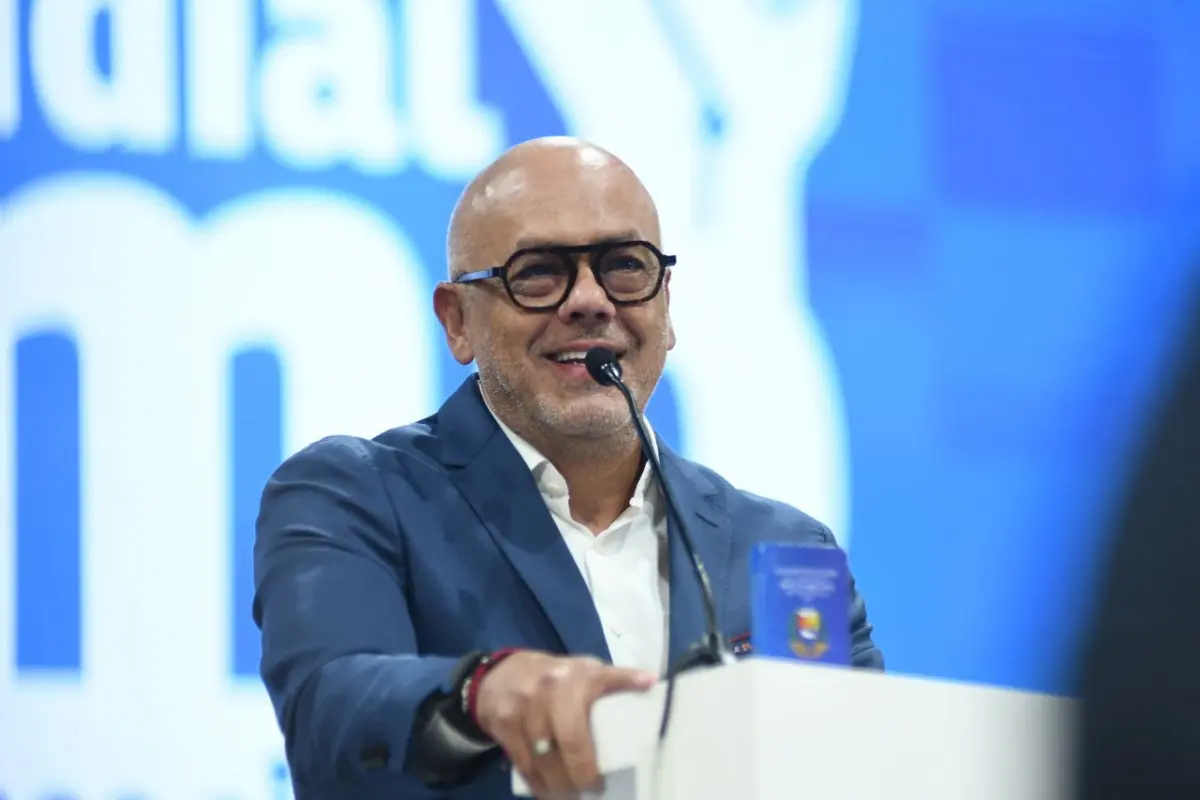
President of the National Assembly’s of Venezuela. Sept 10, 2024 Photo: Radio Miraflores
Caracas, September 11 (RHC)-- The president of the National Assembly of Venezuela, Jorge Rodríguez, said on Tuesday that “Venezuela is the epicenter of the struggle against world fascism”, when he spoke at the World Congress against Fascism, Neo–fascism and other Similar Expressions taking place in the capital, Caracas.
During the lecture entitled “Fascism and the Spiral of Silence,” Rodríguez gave details of how fascist attitudes work in people, which began to take shape in societies of the 1930s and 1940s, and continue today in the context of digital social networks.
Rodríguez stressed that “fascism is nothing but a political expression of the crisis of capitalism, an eminently economic cause. When elites are at risk, fascism emerges in the face of the emergence of social movements that fight against situations of inequality and economic crises.”
He also explained that fascism starts from psychological mechanisms, linked to the so-called mass psychology, as well as questions concerning the economic and social in the Europe of the interwar period.
“Fascism has important psychological elements. Beyond the economic issue, fascism resorts to mechanisms of mental control through propaganda”, he said, while specifying the existence of other elements such as fear, emotions, the mechanism of alienation, the identification of an enemy to be destroyed and the constant threat.
Similarly, he stressed that from the principle of self-destruction on which psychoanalyst Sigmond Freud wrote in 1922, the current owners of social networks are acting in favor of man becoming a being for destruction, the encirclement, hatred, lies and lack of solidarity.
“Social networks are a real danger to the existence of men and women in their free condition. What is in the making is a real threat of slavery,” he warned.
In this sense, he pointed out that at the beginning of the Bolivarian Revolution in Venezuela, sectors that later became fascists, claimed that the Chavista government would strip people of their property.
“These sectors that later emerged as fascists, in the Venezuela of Chávez -- which came to nothing but correct the immense inequality of the Venezuela oil industry of the end of the 20th century -- what they said most was that Chávez was going to take away people’s houses, their car, etcetera,” he said.
The Venezuelan leader noted that “in the case of the Bolivarian Revolution, there has not been a single day when these elements and expressions of brother-on-brother fascism have abandoned these preaching practices.”
Rodríguez recalled that Venezuelans have been favored and protected by the Bolivarian government, as they have been victims of sanctions and economic blockade demanded by fascist groups, backed by the principle of self-destruction Freudian.
The president of the Venezuelan parliament said that nevertheless, “whenever a man and woman raises their voice against fascism, there is hope for humanity.”
[ SOURCE: teleSUR ]

